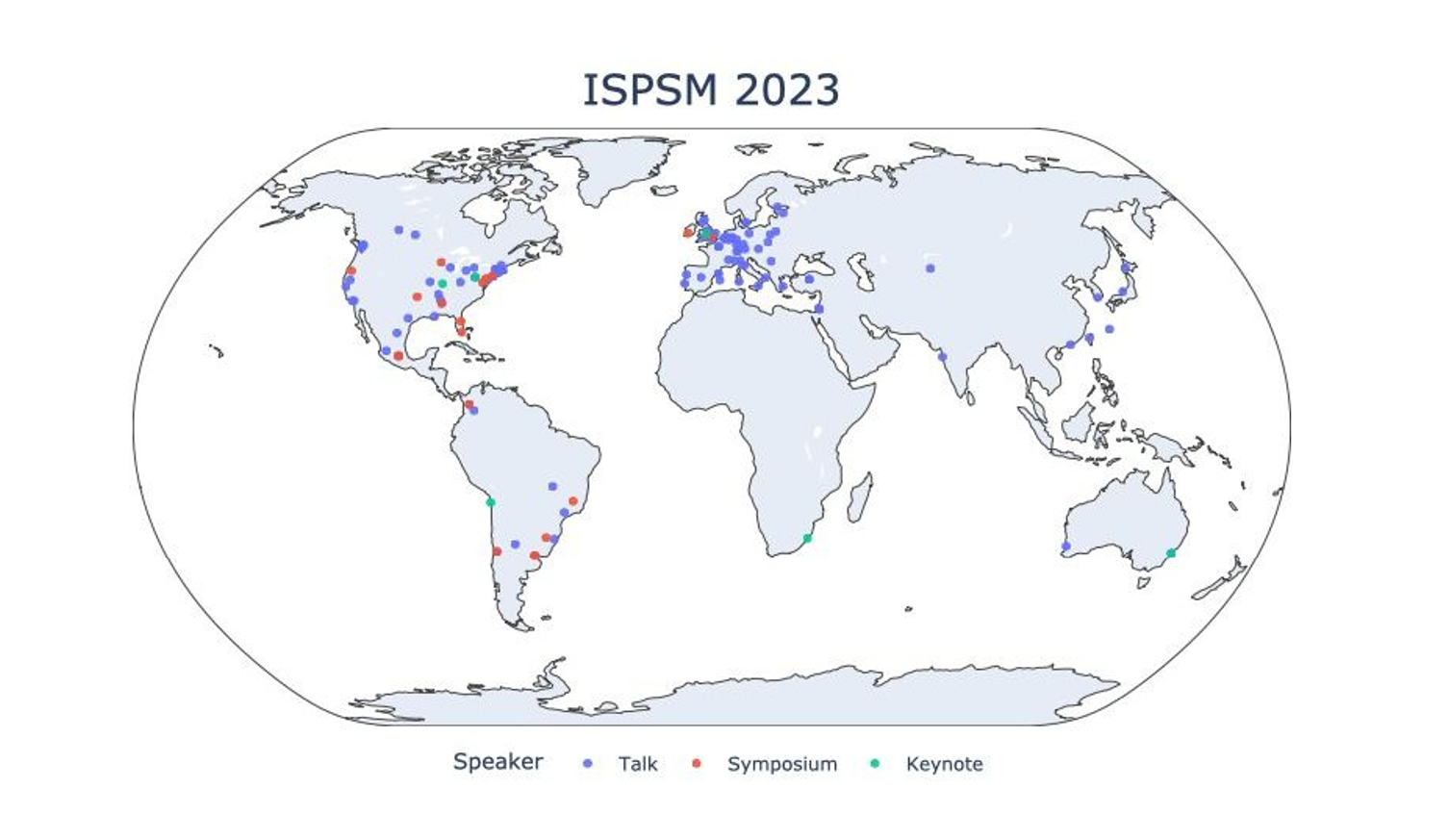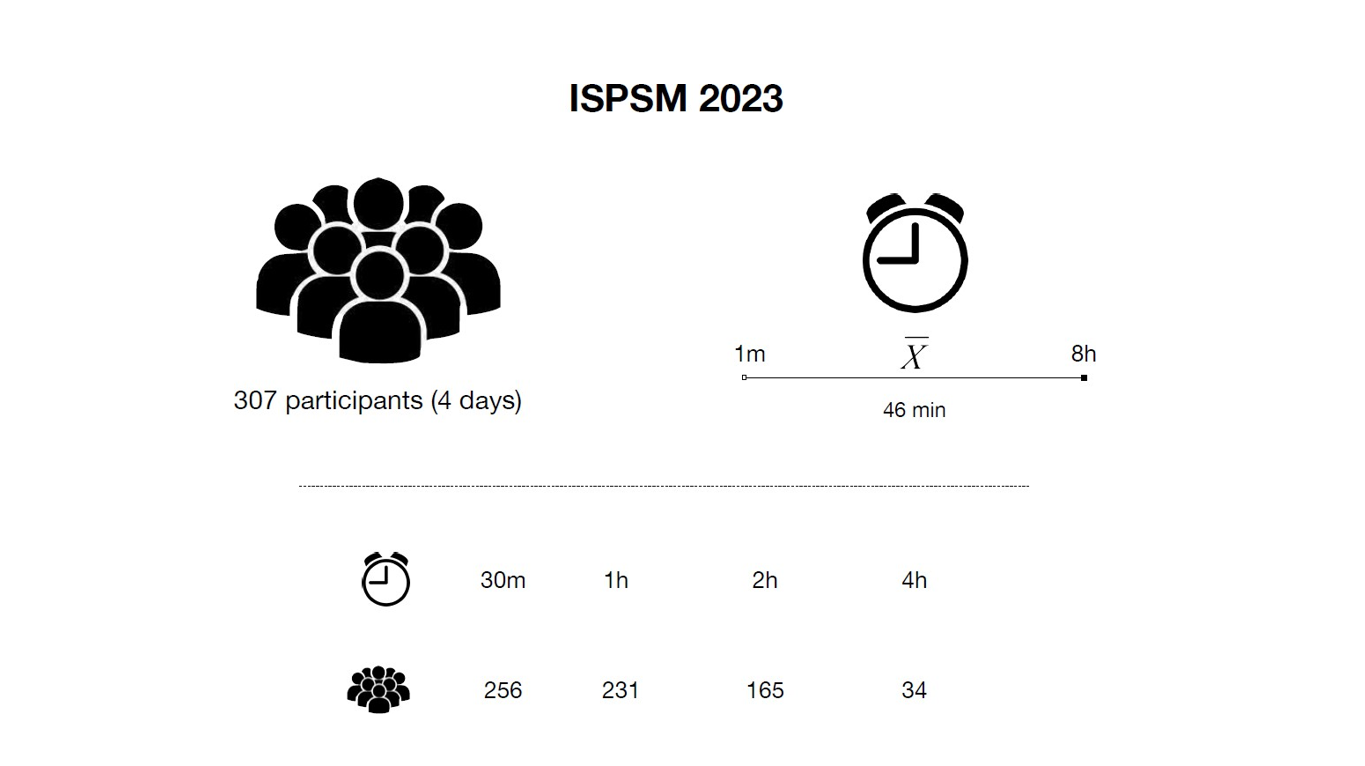New: The International Society for the Philosophy of the Sciences of the Mind (guest post)
Last year, Gualtiero Piccinini (University of Missouri, St. Louis) and Inês Hipólito (Macquarie University) launched the International Society for the Philosophy of the Mind Sciences (ISPSM).
The aim of the society is to foster “philosophical discourse across all realms of mind sciences.”
In this blog post, Dr. Hipólito and Fabrizio Calzavarini (Turin) discuss the reasons for forming the society, its activities, and its future plans.
The Establishment of the International Society for the Philosophy of the Sciences of the Mind
by Inês Hipolito and Fabrizio Calzavarini
In 2023, Gualtiero Piccinini and Inês Hipólito established the International Society for the Philosophy of the Mind Sciences (ISPSM). In this blog post, we highlight the accomplishments of the society’s inaugural year and provide insight into our future endeavors.
Rationale
While regional societies such as the Society for Philosophy and Psychology (SPP) and the European Society for Philosophy and Psychology (ESPP) excel in specific aspects of the mind sciences, the International Society for the Philosophy of the Mind Sciences (ISPSM) distinguishes itself as the first global society committed to fostering philosophical discourse across all realms of mind sciences.
Rooted in principles of inclusivity and diversity, ISPSM is dedicated to dismantling barriers to knowledge exchange, irrespective of geographical or socioeconomic constraints.
In pursuit of this ethos, ISPSM orchestrates virtual conferences that are open to all and environmentally sustainable, devoid of registration fees and travel expenses. This initiative seeks to mitigate economic obstacles to knowledge dissemination. Moreover, recognizing its diverse international audience, ISPSM meticulously schedules its events to accommodate various time zones, ensuring widespread access to discussions from across the globe.
Who is involved?
Gualtiero Piccinini served as the inaugural President of ISPSM, alongside Inês Hipólito as Vice President. Following ISPSM’s bylaws, Inês Hipólito has assumed the role of President, with Fabrizio Calzavarini stepping in as Vice President. Rotating out of the Council are Nicole Rust and Jacqueline Sullivan, while Anand Jayprakash Vaidya from San Jose State University joins the team.
The ISPSM Council is carefully curated to include researchers from diverse geographical areas and constituencies, emphasizing the inclusive nature of ISPSM activities. In 2024, the current council members are:
- Inês Hipólito – President (Macquarie University, Australia)
- Fabrizio Calzavarini – Vice President (University of Turin, Italy)
- Don Ross – (Coláiste na Hollscoile Corcaigh/University College Cork/ University of Cape Town, South Africa)
- Krushil Watene – (University of Auckland, New Zealand)
- Nir Fresco – (Ben-Gurion University of the Negev, Israel)
- Anand Jayprakash Vaidya (San Jose State University)
- Katsunori Miyahara – (Hokkaido University, Japan)
This composition reflects deliberate efforts to uphold principles of diversity and inclusivity, ensuring gender balance and representation from all continents and various philosophical traditions.
Activities
In its inaugural year in 2023, the main platform for knowledge exchange was the first annual web-conference, organized by the Neural Mechanisms Online team team, with assistance from Marco Facchin (FWO1202824N, Antwerp).
To mitigate digital fatigue, the conference spanned two weeks: Friday, November 24, and Saturday, November 25, followed by Friday, December 1, and Saturday, December 2. Time slots were strategically varied to accommodate scholars from diverse time zones.
We were privileged to host six keynote speakers representing various continents and philosophical traditions: Lisa Bortolotti from Europe, Edouard Machery and Piccinini from North America, Mario Villalobos from South America, David Spurrett from Africa, and Hipolito from Oceania (see map below).
In addition to the six keynote talks, which are available on our YouTube channel, the conference featured seven symposia and 126 individual talks selected through blind peer review (for the complete program, please visit the conference webpage). See the demographic distribution in the map below.

Demographics of ISPSM 2023 1st International Conference: Each dot on the map represents the affiliation of a keynote speaker (in green), contributed paper speaker (in blue), or symposium organizer (in red) at the ISPSM 2023 conference.
The data presented in the infographic below regarding participant engagement and online time indicates that the conference successfully attracted a diverse audience, with over 300 participants in attendance. It is notable that a significant portion of attendees remained connected for the duration of only one or two talks. However, this observation is expected considering the diverse range of topics covered throughout the event.

Participants Engagement: Top-left: Number of individual participants that joined the conference across the four days. Top-right: Average time spent online by participants. Bottom: Distribution of participants based on duration of online presence (at least 30 minutes, 1 hour, 2 hours, and 4 hours) across the four days.
Taking into account the demographics and level of engagement among participants, we’re delighted to observe active involvement from non-Western regions and philosophical traditions. However, this also underscores the ongoing need for further efforts to achieve greater equity and inclusion in philosophy beyond the Western tradition—an ongoing priority for our society.
Based on quantitative data and extensive positive informal feedback, we can reasonably assert that, when organized thoughtfully, web conferences serve as a viable supplement to large-scale, in-person events.
2024
The ISPSM has recently announced the Call for Abstracts for its 2nd Annual Webconference, scheduled over several days in October, 2024. The deadline for submissions is April 30th.
In line with ISPSM’s commitment to inclusivity, the organizing committee has undergone significant changes to better represent diverse demographics, genders, and philosophical traditions. Leading the 2nd Annual Webconference are Valeria Becattini from Humboldt-Universität zu Berlin, Marco Facchin from Universiteit Antwerpen, and Liberty Severs from the University of Lisbon. Seven keynote speakers have already been confirmed, and are listed at the conference website.
We welcome abstracts and symposium proposals—submit them easily through our website. To join ISPSM or get on our mailing list, click here.
We enthusiastically welcome membership and submissions from all, with a special emphasis on encouraging contributions from underrepresented groups in academia, including but not limited to women, people of color, LGBTQ+ individuals, persons with disabilities, and indigenous scholars. We also invite scholars from the Global South and those rooted in non-Western philosophical traditions to contribute.
Stay connected with ISPSM through our Facebook, Twitter, Bluesky, and YouTube pages.


